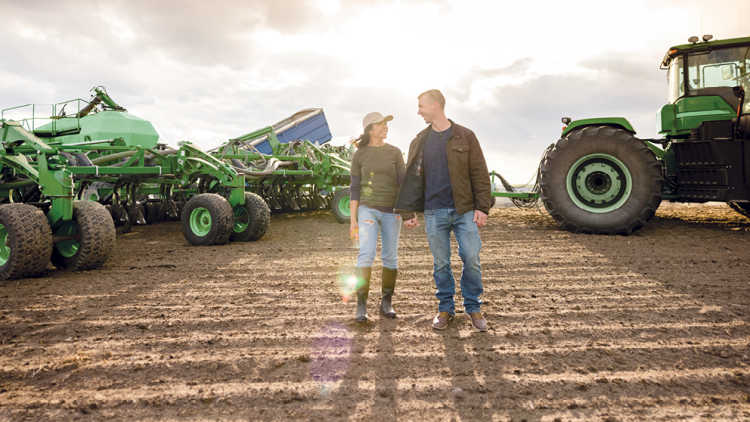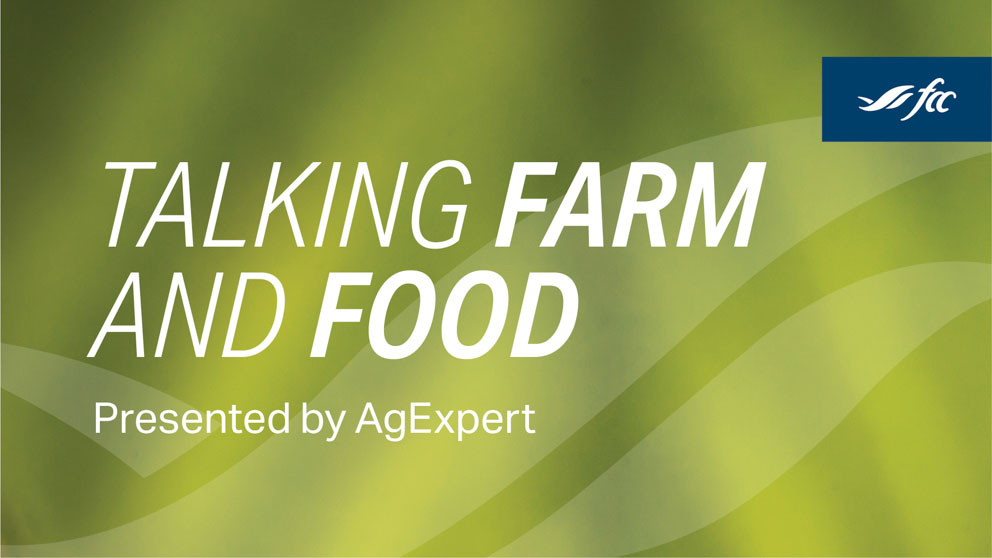Preserving a farm legacy

Ensuring the farm has a future takes preparation. While financial and business management efforts are important, addressing the human element in transition planning is also critical.
Veteran financial advisor and Saskatchewan-based farm business planning specialist Ray Riel has over 30 years of experience with helping farm families plan for the unexpected and knows just how important it is – regardless of their life stage. Part of this planning is having a will and life insurance.
You’re never too young to have a will
Keeping your will up to date is a crucial part of effective estate planning. While common for older individuals and exiting members of a farm family, Riel’s experience suggests only a fraction of young farming couples have a will. This is a problem for several reasons, including the possibility that death could occur unexpectedly at any time.
Keeping your will up to date is a crucial part of effective estate planning.
Dying without a will means surviving family members are subject to specific rules about how the estate is distributed. These rules vary by province, so the division of your estate may ultimately be different than what you would have wanted.
In a family farm context, such stipulations can be financially crippling to the overall business, particularly since assets being transferred to surviving family can be subject to estate taxes.
“I worked with a young family with five kids. The parents jointly owned land, but the cattle were in the husband’s name. She worked off the farm. He died in a vehicle accident and the kids were minors. Without a will, and with minor children, her accountant told her the tax bill would be as if he had sold the entire herd overnight,” Riel says. “Not having a will can literally bring a farm down.”
Pre-plan to avoid confusion
Wills don’t have to be complicated. Even a simple document stating where main assets should go can prevent major complications.
Tom Deans, an intergenerational wealth transfer expert in Ontario, agrees. Lack of planning can quickly divide and destroy wealth accrued over generations. It can also impact family relations. “What could destroy the next generation is the surprise, the confusion, the delay. Dying without a will brings tons of acrimony, confusion and expense,” Deans says. This is particularly tragic, he says, because a person’s true legacy is their family and its success, not the business itself.
“The true legacy of the senior generation becomes the absolute, unwavering commitment to see the next generation succeed. They don’t leave it to chance. They work hard at it.”
However, the nature of farm businesses makes proactive planning a challenge. “It’s difficult to strike the right equality balance when you have assets that are hard to divide, like land,” Deans says.
Provide clarity for decisions
Both Riel and Deans say regularly reviewing your will is a good way to re-familiarize yourself with its contents and provides a chance to make revisions that reflect changing life circumstances – the presence of more children or the identification of a successor, for example.
It also provides a chance to clarify estate planning decisions.
A standard will, says Riel, does not address why a person has divided their estate in a specific way. This leaves room for family members to misinterpret or project their own reasoning onto the deceased person’s estate decisions, creating potential familial strife – a perennial threat to farm viability. For Riel, enhancing a standard will with an explanatory letter is an opportunity to explain what was intended and why.
“It will be the last time your family will hear from you,” Riel says. Recognizing that a farm business is often important to the entire family — not just those who stay in the business — and speaking to family members about what they value and how it can be preserved helps reduce the risk of future conflict.
“A farming legacy is a tapestry made of values, attitudes, property, heirlooms, stories and traditions that form part of family culture. Remember, non-farming kids grew up in the same place as the successors. They’re connected despite not farming and often want to maintain traditions. They want to know that what they value will still be there and is still important despite a business transition.”
Ensure you’re insured
Wills aside, life insurance also safeguards against family-facing debt pressures, childcare expenses, reduced household income potential and other challenges.
Term insurance lasts for a specific period. If death occurs during that time, the policy holder’s family receives the benefit. Riel says this is a good choice for younger farmers since children are often in the picture, and significant debt tends to be incurred earlier in one’s farming career. Premiums are also affordable.
Conversely, older farmers might opt for permanent insurance. It’s a more expensive option that guarantees the family will receive a benefit regardless of when the policy holder dies. Sufficient foresight allows younger purchasers to acquire convertible policies, allowing for the conversion of term to permanent insurance at the end of the term period, without having to undergo medical assessment.
A will and life insurance are two important planning tools that can help farm families insulate both their businesses and their relationships against the unexpected.
From an AgriSuccess article by Matt McIntosh.

In the fifth of a 9-part series, learn why will and estate planning is critical to transition planning and how maintaining a detailed, current will supports business and family commitments.

